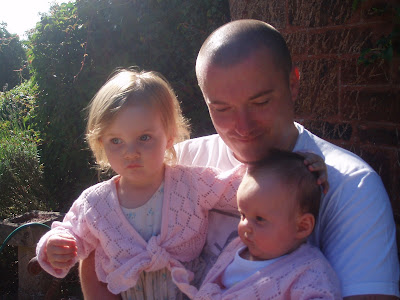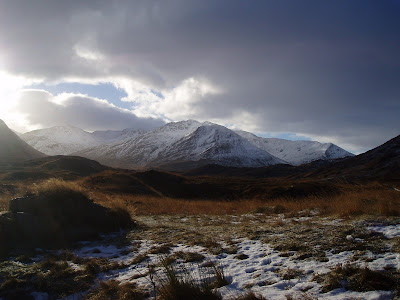
Fukan-Zazengi (Rufu-Bon - The Popular Edition - Trans. Mike Chodo Cross)
Now, when we research it, the truth originally is all around: why rely upon practice and experience? The vehicle for the fundamental exists naturally: where is the need to expend effort? Furthermore, the whole body far transcends dust and dirt: who could believe in the means of sweeping and polishing? In general, we never depart from the place where we should be: of what use, then, are the tiptoes of training?
However, if there is a thousandth or a hundredth of a gap, heaven and earth are far apart, and if a trace of disagreement arises, we lose the mind in confusion. Even if, proud of our understanding and richly endowed with enlightenment, we obtain special states of insight, attain the truth, clarify the mind, manifest a zeal that pierces the sky, and ramble through those remote spheres that are entered with the head; we have almost completely lost the vigorous path of getting the body out.
Moreover, remembering the natural sage of Jetavana park, we can [still] see the traces of his six years of upright sitting. We can still hear rumours of the transmitter of the mind-seal at Shaolin, spending nine years facing the wall. The ancient saints were like that already: how could people today fail to practice wholeheartedly?
So cease the intellectual work of studying sayings and chasing words. Learn the backward step of turning and reflecting light. Body and mind naturally drop off, and the original face appears. If we want to attain the matter of the ineffable, we should urgently practice the matter of the ineffable.
In general, a quiet room is good for Zen practice, and food and drink are taken in moderation. Abandon all involvements. Give the myriad things a rest. Do not think of good and bad. Do not care about right and wrong. Stop the driving movement of mind, will, consciousness. Cease intellectual consideration through images, thoughts, and reflections. Do not aim to become a buddha. How could it be connected with sitting or lying down?
Usually on the place where we sit we spread a thick mat, on top of which we use a round cushion. Either sit in the full lotus posture or sit in the half lotus posture. To sit in the full lotus posture, first put the right foot on the left thigh, then put the left foot on the right thigh. To sit in the half lotus posture, just press the left foot onto the right thigh. Let clothing hang loosely and make it neat. Then place the right hand over the left foot, and place the left hand on the right palm. The thumbs meet and support each other.
Just sit upright, not leaning to the left, inclining to the right, slouching forward, or arching backward. It is vital that the ears vis-à-vis the shoulders, and the nose vis-à-vis the navel, are caused to oppose each other. Let the tongue spread against the roof of the mouth. Let the lips and teeth come together. The eyes should be kept open. Let the breath pass imperceptibly through the nose.
Having regulated the physical posture, breathe out once, and sway left and right. Sit still, "Thinking that state beyond thinking." "How can the state beyond thinking be thought?" "Non-thinking." This is the vital art of sitting-zen.
What is called sitting-zen, sitting-meditation, is not meditation that is learned. It is the Dharma-gate of effortless ease. It is the practice and experience that gets to the bottom of the Buddha's enlightenment. The laws of the Universe are realized, around which there are no nets or cages. To grasp this meaning is to be like a dragon that has found water, or like a tiger before a mountain stronghold. Remember, true reality spontaneously emerges, and darkness and dissipation vanish at a stroke.
If we rise from sitting, we should move the body slowly. Rise with calm confidence. We should not be hurried or violent.
We see in the past that those who transcended the profane and transcended the sacred, and those who died while sitting or died while standing, relied totally on this power. Moreover, changing of the moment through the action of a finger, a pole, a needle, or a wooden clapper; and exact experience of the state through the manifestation of a whisk, a fist, a staff, or a shout, can never be understood by thinking and discrimination. How could they be known through mystical powers or practice and experience? They may be dignified behaviour beyond sound and form. How could they be anything other than a criterion that precedes knowing and seeing?
Therefore, we do not discuss intelligence as superior and stupidity as inferior. Let us not choose between clever persons and dimwits. If we make effort devotedly, that is just wholehearted pursuit of the truth. Practice-and-experience is naturally untainted. The direction of effort becomes more balanced and constant.
In general, in this world and in other worlds, in India and in China, all equally maintained the Buddha-seal, and solely indulged in the fundamental custom: they simply devoted themselves to sitting, and were caught by the still state.
Although there are myriad distinctions and thousands of differences, we should devote ourselves solely to Zen practice in pursuit of the truth. Why should we abandon our own sitting platform, to come and go without purpose through the dusty borders of foreign lands?
If we misplace one step we pass over the moment of the present. We have already received the essential pivot which is the human body: let us not pass time in vain. We are maintaining and relying upon the pivotal essence which is the Buddha's truth: who could wish idly to enjoy sparks from flint? What is more, the body is like a dewdrop on a blade of grass. Life passes like a flash of lightning. Suddenly it is gone. In an instant it is lost.
I beseech you, noble friends in learning through experience, do not grow used to images and doubt the real dragon. Apply yourself to the path which is directly indicated and straightforward. Revere a person who is beyond study and spontaneous. Accord with the enlightened state of the buddhas. Authentically succeed to the samadhi of the ancestors. If you practice the ineffable for a long time, you will be ineffable. The treasure-house will naturally open, for you to receive and use as you like.
















